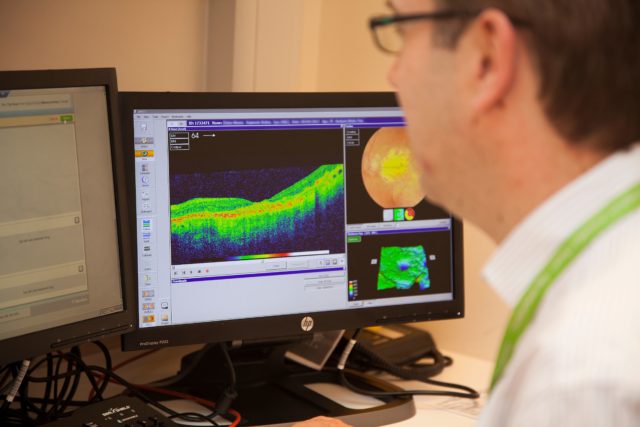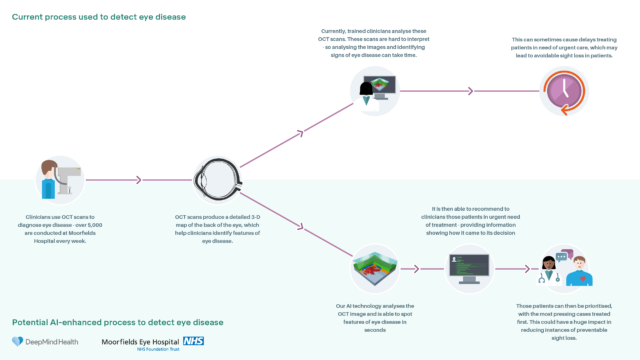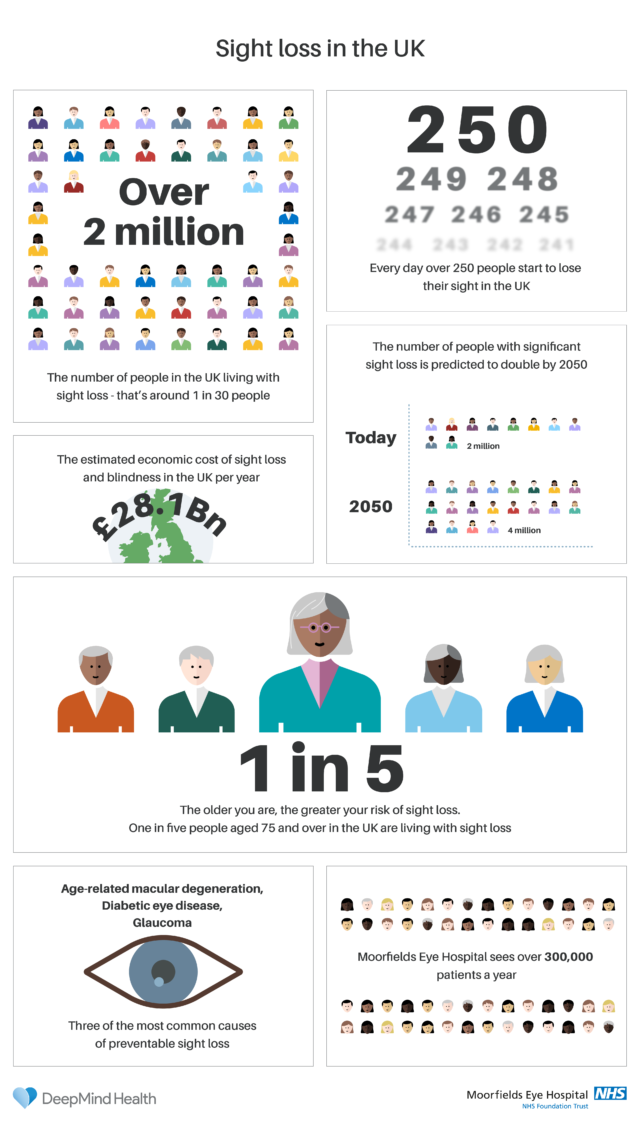AI system as good as top experts at identifying eye disease
Artificial intelligence could help doctors save the sight of patients with serious eye conditions.

An artificially intelligent (AI) programme “trained” with data from thousands of NHS patients can spot key signs of eye disease as well as the world’s top experts, a study has shown.
The system has the potential to prevent irreversible sight loss by ensuring that patients with the most serious eye conditions receive early treatment.
Early results from tests of the scanning technology are so promising researchers believe it could be rolled out across 30 UK hospitals in less than three years.

“There is a risk that this may cause delays in the diagnosis and treatment of sight-threatening diseases, which can be devastating for patients.
“The AI technology we’re developing is designed to prioritise patients who need to be seen and treated urgently by a doctor or eye care professional.
“If we can diagnose and treat eye conditions early, it gives us the best chance of saving people’s sight.”

An OCT scan uses light rather than X-rays or ultrasound to generate 3D images of the back of the eye, revealing abnormalities that may be signs of disease.

Findings published in the journal Nature Medicine showed that it was able to triage patients with more than 50 eye conditions correctly in more than 94% of cases, matching the performance of leading experts from around the world.
The programme does not make a definitive diagnosis of its own. But on the basis of clinical signs such as holes in the macular, the central region of the retina, or blocked retinal veins, it can swiftly recommend which patients should be seen urgently by a specialist or simply placed under observation.
Under a five-year development programme the scientists now plan to press ahead with clinical trials.
Potentially, the system could be introduced in all 30 of Moorfields’ UK hospitals and clinics in as little as two-and-a-half years, though this is a very rough estimate and not a set target.

In many cases blindness can be prevented by the early detection and treatment of eye diseases such as macular degeneration and glaucoma.
Mustafa Suleyman, co-founder and head of Applied AI at DeepMind Health, said: “We set up DeepMind Health because we believe artificial intelligence can help solve some of society’s biggest health challenges, like avoidable sight loss, which affects millions of people across the globe.
“These incredibly exciting results take us one step closer to that goal and could, in time, transform the diagnosis, treatment and management of patients with sight-threatening eye conditions, not just at Moorfields, but around the world.”
The study was one of two demonstrating the effectiveness of AI screening of patients reported in Nature Medicine.
The other programme, developed in the US, was able to identify signs of brain damage caused by stroke, haemorrhage and hydrocephalus from CT (computed tomography) X-ray scans in just 1.2 seconds.
Lead researcher Dr Eric Oermann, from Mount Sinai Hospital in New York City, said: “Such a triage system can alert physicians to a critical finding that may otherwise remain in a queue for minutes to hours.”
Derek Hill, Professor of Medical Imaging Science at University College Hospital, said: “These papers provide further evidence that artificial intelligence will soon be routinely supporting doctors in streamlining diagnosis and treatment of numerous illnesses.”





